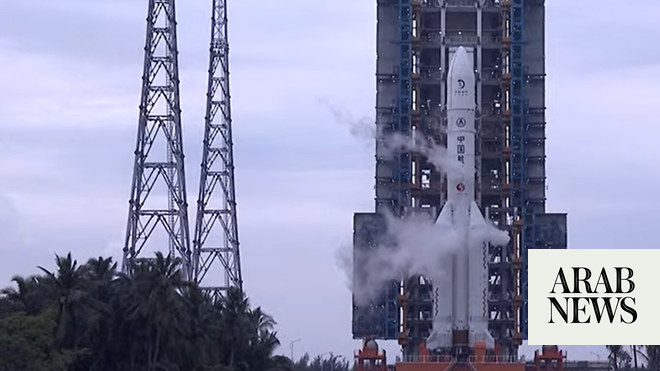Pakistan’s top military commander denounces cross-border attacks from Afghanistan as ‘digital terrorism’
ISLAMABAD: Pakistan’s top military commanders met on Thursday to discuss “serious concerns” about cross-border attacks they say are being orchestrated by militants using neighboring Afghanistan as a safe haven, and the use of social media by “politically motivated” domestic forces to sow discord between the military and the population.
These views were expressed at the 83rd Formation Commanders Conference held at Army Headquarters Rawalpindi and attended by Pakistan Army Chief General Asim Munir, all Corps Commanders, Principal Staff Officers and Formation Commanders.
The Pakistani military said at a press conference earlier this month that a suicide bombing that killed five Chinese engineers in March was planned in neighboring Afghanistan and was perpetrated by an Afghan. The government and military had previously blamed militants hiding out in Afghanistan for a rise in attacks in Pakistan.
Relations between Pakistan and Afghanistan have deteriorated in recent months. Islamabad says Kabul has not done enough to counter militant groups targeting Pakistan. In March, Pakistan also carried out airstrikes targeting militant groups inside Afghanistan. The Taliban denies Islamabad’s accusations, saying Pakistan is responsible for its own security challenges.
Pakistan has expelled about 500,000 illegal Afghan nationals since late last year, claiming that most suicide attacks against its security forces were carried out by Afghans, a claim the Kabul government denies.
“The forum expressed serious concern over the continuing border violations from Afghanistan and terrorism being organised using Afghan territory, and noted that Pakistan’s hostile elements are using Afghanistan to target security forces and innocent civilians inside Pakistan,” said a statement issued by the army after a meeting of corps commanders on Thursday.
Alluding to former Prime Minister Imran Khan’s Pakistan Tehreek-e-Insaf (PTI) party for the internal challenge, the statement said “politically motivated and vested interest-driven digital terrorism” was carried out by “conspirators with due support of foreign cronies against state institutions”.
“[It] “This operation is clearly an attempt to dishearten the people of Pakistan and create discord between the state institutions, especially the armed forces, and the people of Pakistan by spreading blatant lies, fake news and propaganda,” the statement said.
“However, the public is fully aware of their ugly and hidden motives, and the plans of these evil forces will undoubtedly be completely defeated.”
The military remains the country’s most powerful institution and has played a major role in making and breaking governments over the decades. Khan has accused the military of suppressing him and his party, charges it denies.
Khan, who is widely believed to have taken power with the military’s backing in 2018, clashed with senior military officials and was ousted as prime minister by a parliamentary vote of no confidence in April 2022. Khan has since waged a defiant campaign against the military, accusing them of conspiring with his political opponents to remove him from office.
Tensions between Khan and the military culminated on May 9 last year when alleged PTI supporters attacked and destroyed government and military facilities. Hundreds of PTI supporters and leaders were arrested following the riots, and some remain in prison awaiting trial. The army also began military tribunal trials of at least 103 people allegedly involved in the riots. Many of Khan’s closest aides have since abandoned him, widely believed to be due to pressure from the military, which denies it was interfering in politics.
“The planners, perpetrators, abettors and facilitators of the May 9 attacks must be brought to justice in the collective interest of the country. Without swift and transparent justice against the perpetrators and the establishment of the rule of law, the country’s stability will remain hostage to the conspiracies of such elements,” the military statement concluded.
Khan and the PTI say the May riots were used as a ploy by political opponents and the military to crack down on his party, arguably Pakistan’s most popular. Khan has also been charged under Pakistan’s anti-terrorism law in connection with the riots. Pakistan’s 1997 Anti-Terrorism Act includes a section that carries the death penalty as a maximum punishment. Khan denies the charges and says he was in custody when the riots took place.
Khan was also convicted of four offences ahead of the February 8 general election, losing his right to vote as Pakistani law prohibits convicted persons from running for public office. Khan has said all of these trials are designed to keep him out of politics.

